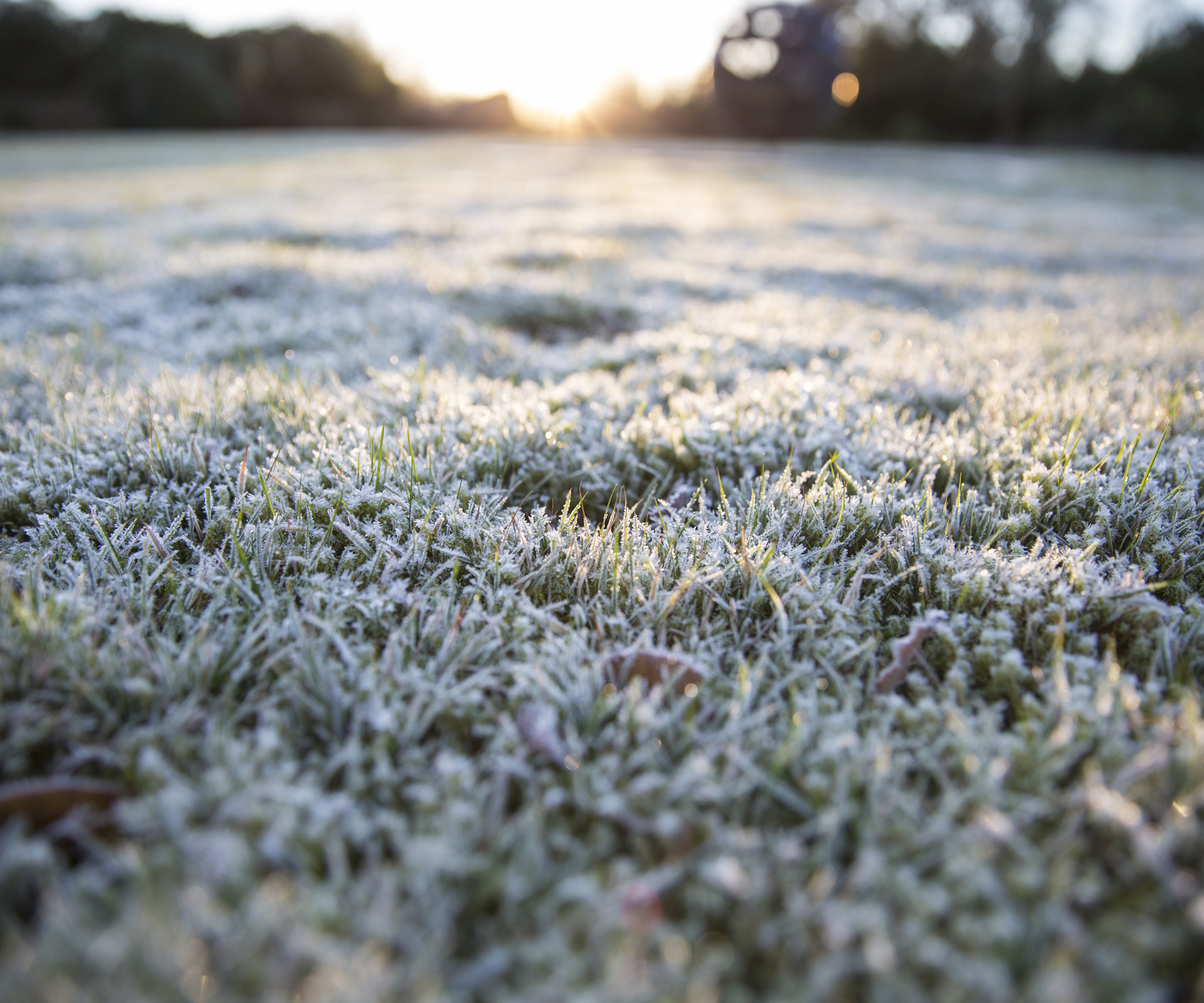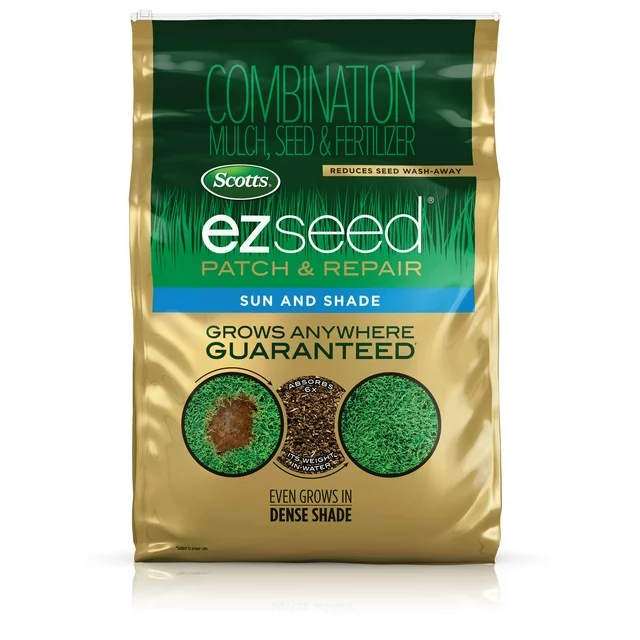Experts warn against walking on frozen grass to avoid damaging the health of your lawn
Why you need to keep off the lawn on frosty winter mornings


Many gardeners put in lots of time and effort to get a pristine lawn, and all that effort can potentially be spoiled by not keeping off the grass when it is frozen in winter.
Ice and frosts leave grass very susceptible to being damaged. Walking on frozen grass damages the turf in several ways and means it may not grow back properly when the temperatures start to rise again in spring.
With lots of people putting countless hours into lawn care every year, don’t ruin all that hard work by setting foot on the grass after a frosty night. Wait until the frost thaws before stepping out onto the lawn, or stick to paths or driveways when you can.
We hear from lawn care experts about the dangers of walking on frozen grass and what the alternatives are to avoid having to do so.

Frosty lawns may look beautiful, but should be kept off
Does walking on frozen grass kill it?
Walking on frozen grass does not completely kill it, though it can have detrimental effects on your lawn and can potentially cause long-term damage.
It is important to winterize a lawn and take measures to ensure your grass comes out of the cold in top health.

Walking on frozen grass does damage the lawn
Why shouldn't you walk on frozen grass?
Grass is under great stress and is very brittle when it is frozen. Frost and snow can damage a lawn as any pressure from walking on the frozen lawn will break and damage the blades of the grass
Design expertise in your inbox – from inspiring decorating ideas and beautiful celebrity homes to practical gardening advice and shopping round-ups.
Sean Lade, gardening expert and director of Easy Garden Irrigation, warns that treading on frozen grass causes those broken grass blades to ‘compact down and cover the grassroots’, which can cause longer-term problems.
‘This prevents the roots from getting the water and oxygen it needs to stay healthy. When spring comes around, you’ll see yellow patches of dead grass that will not grow back as quickly,’ he warns.
‘If you are a proud owner of an immaculate lawn, I would definitely suggest not treading on it. Even a small dog walking over it can snap the blades. If you must walk on the grass, wait until after the mid-morning sun has melted the frost and warmed up your grass.’
As well as snapping the grass blades, walking on a frozen lawn will also compact the soil.
Donna Ryan, a former landscaper and lawn consultant, says that frozen soil is ‘less pliable’ and harder than unfrozen ground.
She adds: ‘Walking on frozen grass puts pressure on and compresses the soil underneath. This compression can affect root development and make it more difficult for the grass to regrow in the spring.’
As part of your winter lawn care, it is recommended to minimize foot traffic on your lawn as much as possible when it is frozen, including telling your family and guests to avoid walking on the lawn in winter. If you do have pathways or driveways that can be walked on, plan ahead to prepare those surfaces before a frost to ensure they can be used rather than having to walk on the lawn.
However, Sean Lade says ‘you don't need to panic’ if someone, or a household pet, walks over the lawn when it is frozen. ‘You can expect it to recover from the damage, but it will be later in spring that you can enjoy a perfect lawn again. If you find damage, make a note in your calendar to reseed the lawn next spring,’ he adds.

Sean Lade is the Managing Director of Easy Garden Irrigation, an industry-leading BALI-accredited company. Sean holds in-depth expertise in gardening and horticulture, with a focus on designing efficient irrigation systems.

Scotts EZ Seed Patch & Repair is designed to fill in bare patches on lawns and repair damage to grass. It contains grass seed, mulch to surround the seed, controlled release fertilizer and tackifier to stop the seed from washing away. It is all you need to reseed damaged patches of lawn in spring
FAQs
What happens if you mow frozen grass?
It may come as no surprise that it is not advised to mow frozen grass. A final mow of the lawn before winter should come before the first frost arrives.
Walking over the frozen grass and running a mower over it will touch and damage all the blades of grass. Mower blades will also not cut frozen grass blades cleanly and this can leave the lawn susceptible to pests and diseases.
Do not be tempted to cut the grass short for winter, as leaving the blades longer can help to insulate the roots over the colder months. Raise the height of the mower for the last few cuts of the year and your lawn will feel the benefit over winter.

Drew has worked as a writer since 2008 and was also a professional gardener for many years. As a trained horticulturist, he worked in prestigious historic gardens, including Hanbury Hall and the world-famous Hidcote Manor Garden. He also spent time as a specialist kitchen gardener at Soho Farmhouse and Netherby Hall, where he grew vegetables, fruit, herbs, and cut flowers for restaurants. Drew has written for numerous print and online publications and is an allotment holder and garden blogger. He is shortlisted for the Digital Gardening Writer of the Year at the 2025 Garden Media Guild Awards.